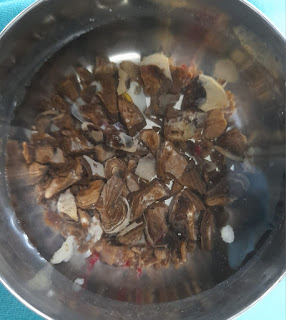World Hepatitis Day – 28th July

About :
World Hepatitis Day is observed every year on 28th July to raise global awareness about the virus Hepatitis which causes inflammation of the liver and vaccine individuals against the Hepatitis diseases. This day is the birthday of Baruch Samuel Blumberg, an American physician who discovered Hepatitis B and later developed the first Hepatitis B vaccine. The theme for World Hepatitis Day is ‘I can’t wait’ which highlights the need to accelerate the fight against viral hepatitis and the importance of testing. Most acute hepatitis infections cause mild disease and even go undetected, but, in some cases they can lead to complications and prove fatal.
Types of Hepatitis :
There are five hepatitis viruses. They are :
1) Autoimmune Hepatitis – It is a long term or chronic inflammatory liver disease. This occurs when the body’s immune system attacks the liver cells causing inflammation, swelling and liver damage.
2) Hepatitis A – It is a vaccine preventable liver infection caused by the hepatitis A virus (HAV) and is very contagious. It is spread when someone unknowingly ingests the virus through close personal contact with an infected person or eating contaminated food or drink. Another cause of Hepatitis A is eating shellfish harvested from contaminated water. The incubation period is two to six weeks, during which the infected person is contagious. Symptoms include fatigue, nausea, stomach pain and jaundice and there are no long term health implications.
3) Hepatitis B - It is a vaccine preventable liver infection caused by the hepatitis B virus (HBV) and is spread when semen, blood or other body fluids from an infected person enters a non infected person through sexual contact, sharing needles, syringes or from mother at childbirth. Symptoms include fatigue, poor appetite, stomach pain, nausea and jaundice. For many it is a short term illness while, for some, it can be a chronic infection like cirrhosis or liver cancer.
4) Hepatitis C – This virus is spread by infected blood usually, by sharing needles or other injecting equipment. Chronic Hepatitis C may develop with short lived or no symptoms and can result in cirrhosis and liver cancer. There is no vaccine for Hepatitis C infection and getting tested is important because treatment can cure most people.
5) Hepatitis D – It is also known as “delta hepatitis” caused by Hepatitis D Virus (HDV). It affects people who are infected with Hepatitis B virus and is spread by infected blood or body fluids. Hepatitis D can be a short term or chronic infection with severe symptoms leading to permanent liver damage. There is no vaccine for Hepatitis D, however, Hepatitis B vaccine also protects against Hepatitis D infection. This infection commonly occurs among adults than children.
6) Hepatitis E – Hepatitis E Virus (HEV) also known as enteric hepatitis is similar to Hepatitis A and is spread when someone unknowingly ingests the virus and is found in the stool of an infected person. In developing countries, most often people are affected from contaminated drinking water, undercooked meat or shellfish. Symptoms include fatigue, poor appetite, stomach pain, nausea and jaundice.
7) Neonatal hepatitis – This inflammation of the liver occurs in early infancy, usually between one or two months after birth. Infants affected with neonatal hepatitis include viruses like cytomegalovirus, rubella (measles) and hepatitis A, B or C viruses. Symptoms usually include jaundice (Yellow eyes and skin), not gaining weight and has an enlarged liver and spleen along with the inability to absorb vitamins for proper growth. There is no specific treatment for neonatal hepatitis and vitamin supplements are usually prescribed and in many cases drugs are advised to control seizures which also stimulate the liver to excrete additional bile.
Conclusion :
The department of Gastroenterology at Ruby General Hospital provides a comprehensive and state-of-the-art service by means of the outpatient and inpatient facilities. The department is manned by esteemed and experienced gastroenterologists, skilled and compassionate paramedical staff, well-trained technicians and nurses.


Comments
Post a Comment